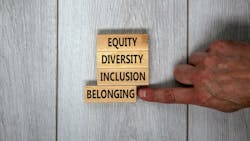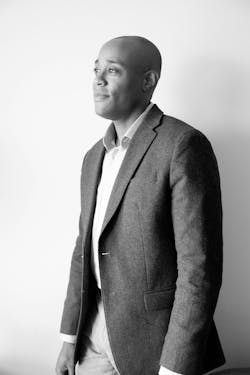Our industry stands at a crossroads of Diversity, Equity & Inclusion (DEI) fatigue, and I believe it’s innovation and honesty that will be the answers to achieving more meaningful, authentic corporate and social change on the other side.
The recent bright lights have dimmed on the billion-dollar DEI industry. Despite the dedication of resources, financial and human capital assigned to dismantle biases and inequalities, not to mention the countless workshops and conversations, there's a growing sense that we might be walking in circles. We’ve failed to shift the structural underpinnings of systemic challenges that are designed to resist change. While DEI efforts are to be applauded, it is time to address the distraction these initiatives present—which can sometimes leave us not changing anything at all.
The Illusion of Progress
The design industry's journey towards DEI has often mirrored a performative mix of emotion and action. All well-meaning yes, but lacking strategic approaches to influence tangible change, and furthermore effectively address the fact that the nature of the system we seek to change is designed to oppose any intervention. This is what is creating the cycle of DEI fatigue we are all feeling. Our “not this again” attitude reveals a disheartening truth: our current approach to DEI, while ambitious, fails to tackle the roots of exclusionary practices, stereotypes and biases that are intricately woven into the fabric of our human interactions and the environments we design.
Confronting Industry Dishonesty
To pivot towards a more impactful DEI strategy within the design industry, we must confront our collective contradictions more openly. We create beauty while contributing to diminishing the sustainability of our planet via the enormous waste we produce. We craft luxury for some at the expense of others to uphold social-economic division in our communities. Those are just two examples.
Our unwillingness to be transparent and honest about the practice of design in our modern construct threatens to undermine the change we seek and are best positioned as an industry to achieve. DEI efforts are polarizing and continue to be politicized, hindering our collective sense of humanity from making meaningful change visible. It must be understood, that at its core DEI was always intended to be about the fair treatment of human beings. It’s evidence of our shared responsibility to be human to each other. This is the focus of the interventions needed to address the systemic barriers that perpetuate a facade of acceptance and change that crumbles under the weight of its superficial commitments.
Commerce, Culture and the Core of Design
Leading with honesty, our community must acknowledge that modern design, as popularized in our current context, is rooted in a past entrepreneurial response to market opportunities for wealthy individuals and artisans to exchange creativity for commerce. Our foundational principles as an industry are steeped in competition, profitability and exclusionary practices to sustain competitive advantages and social status.
Over the years design has indeed been democratized in Global North contexts, yet our driving principles are held largely intact. The challenge is the disparity this foundation scaled over time toward achieving its purpose, often overlooking and diminishing the rich, diverse tapestry of design contributions across an array of cultures as less than “good design.” Exclusion is a big part of who we are as an industry. It’s in our conversations, commitments and corporate mandates if you listen and look closely.
We cannot afford to allow this element of our industry’s DNA to undermine our perspectives when evaluating the impact or effectiveness of DEI initiatives. What is good enough and who gets to decide? Together, we must remain reflective as a collective community to ensure our foundational principles do not undermine our effectiveness in addressing systemic issues with transparent honesty.
The Paradox of Change and the Culture of Competition
Change is hard work. We must be clear on what we are willing to give up, ensuring fairness is achieved while serving our clients, our own needs and the needs of our communities.
We must confront some uncomfortable truths about ourselves and our professional intentions. Although we have an insatiable appetite for innovation, it is matched in equal parts to a profound resistance to change when it requires a redistribution of what we deem valuable. Not doing this work (or delaying it) is undermining building the structural equity needed to sustain resolving inequities. Our industry must be clear on what it wishes to change within its own culture internally first, before looking to support efforts to influence change outwardly.
Acknowledging that our success may have come at the expense of others requires introspection and honesty—qualities often overshadowed by a reluctance to engage with meaningful DEI initiatives that go beyond surface-level interventions. As an industry, we borrow freely to deliver our work, but we cannot copy or crop DEI efforts for one-size-fits-all solutions or solely focus on profitability to gauge fiscal commitments. We must focus on the human impacts and align priorities to construct structural change within our business contexts and processes for effectiveness.
It is time to choose a new path, marked by honesty, reflection and clarity of action for meaningful DEI engagement fit for the design community and your business. Be accountable for the change you want to see. Most importantly, be honest about how far you are willing to go to make change possible. Only then can we stop circling the status quo to move forward in realizing our full potential as an industry: to augment one's sense of being human.
About the Author
Ian Rolston
Ian Rolston is the founder of Decanthropy, a strategic intervention studio specializing in dimensional design.
Sign up for our eNewsletters
Get the latest news and updates

